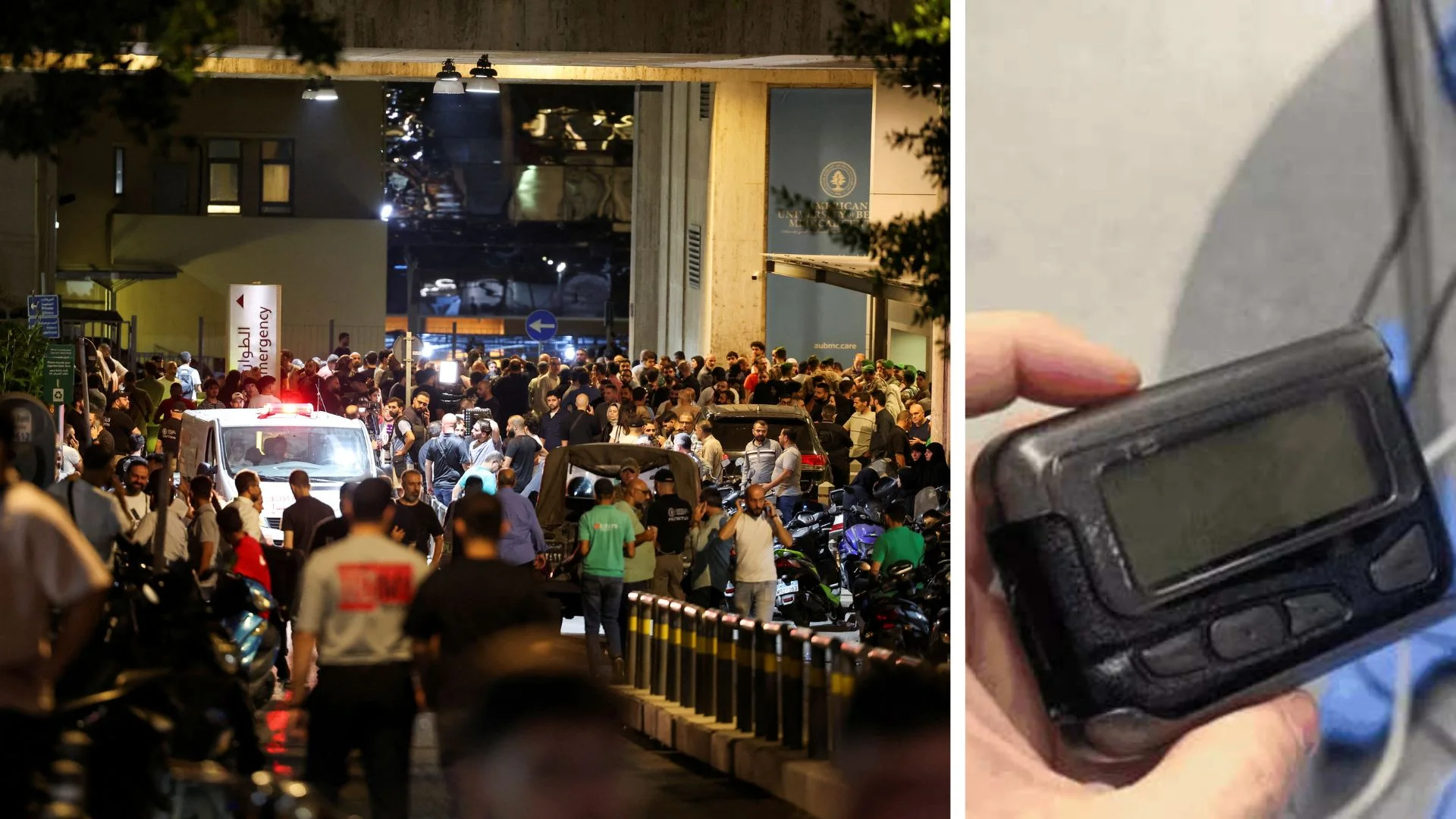At 3:30 pm local time on Tuesday, September 17, an unusual and deadly incident unfolded across Lebanon when hundreds of pagers carried by Hezbollah members exploded nearly simultaneously. The blasts killed at least nine people and injured over 2,800, sending shockwaves through the nation. The explosions, which continued for nearly an hour, have raised questions about how the devices could have been detonated at the same time.
Shortly after the explosions, videos circulated on social media showing chaos in hospitals overwhelmed with the wounded. Explosions appeared to occur at waist height, with images showing damaged pagers. Musa, a resident of Beirut, shared with AFP: “I’ve never seen someone just walking and then explode. People had no idea what was happening.” Another witness described blood-covered streets and ambulances transporting people to hospitals, while the cause of the blasts remained unclear.
Soon after the event, Hezbollah accused Israel of carrying out a coordinated and complex attack, promising retaliation. The Israeli Defense Forces have remained silent, fueling further speculation. As regional tensions rise, concerns grow that this incident could trigger a broader escalation in the West Asian region.
The Role of Pagers in Hezbollah’s Operations
Pagers, also known as beepers, were once the most popular communication tools before the smartphone era. Despite their decline in public use, they remain common in certain sectors, such as healthcare and emergency services, where reliable communication is critical. Pagers send numeric or text-based messages using dedicated frequencies, and their simple design makes them effective in areas with weak cellular networks.
For Hezbollah, pagers are a key communication tool due to their untraceable nature. The group has long relied on them to avoid interception by Israeli forces. In February, Hezbollah’s leader Hassan Nasrallah urged members to discard mobile phones, calling them “collaborators” with Israel, due to concerns over hacking and surveillance.
Pagers provide Hezbollah with a secure way to issue instructions. Military experts, including former CIA analyst Emily Harding, note that Hezbollah’s avoidance of cell phones makes them harder to track. However, this approach can also limit communication efficiency, especially during rapid military actions.
What Caused the Explosions?
Hezbollah has launched an investigation into the explosions, vowing retribution against Israel, which they blame for the attack. Lebanese authorities labeled the blasts an act of “Israeli aggression.” Some security experts speculate that overheating pager batteries might have caused the blasts, but many doubt this explanation.
The New York Times reported that Israel may have infiltrated Hezbollah’s supply chain, planting explosives in a batch of pagers before they were imported to Lebanon. This theory is supported by Israel’s history of using similar tactics, such as planting explosives in phones to target key figures.
Battery safety expert Paul Christensen expressed doubts about batteries alone causing such damage. “A small battery bursting into flames doesn’t match the scale of these explosions,” he said. Additionally, experts pointed out that only fully charged batteries are prone to explode, making it unlikely that all faulty pagers were at full charge during the blasts.
Authorities and Reactions
Lebanese officials labeled the incident a “cyberattack,” while Hezbollah called it an “act of Israeli aggression” against Lebanon’s sovereignty. The US State Department has not commented on the incident but stated it is gathering information. The Pentagon reported no changes to US force posture in the Middle East. Israel has declined to comment on the allegations.
As Hezbollah vows retaliation and tensions mount, this incident adds another layer of complexity to the already volatile situation between Lebanon and Israel. Experts warn that further escalations could destabilize the region and affect broader diplomatic efforts in West Asia.























